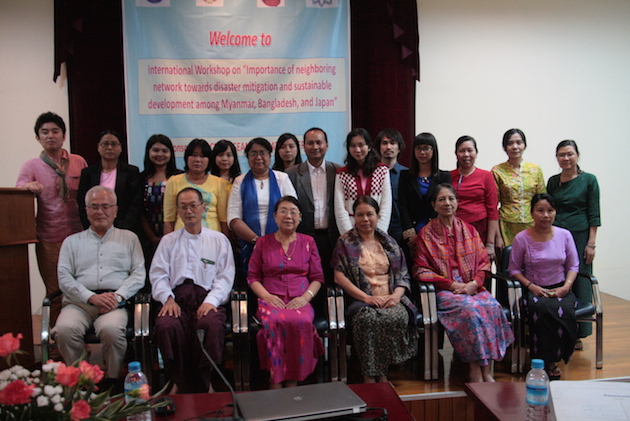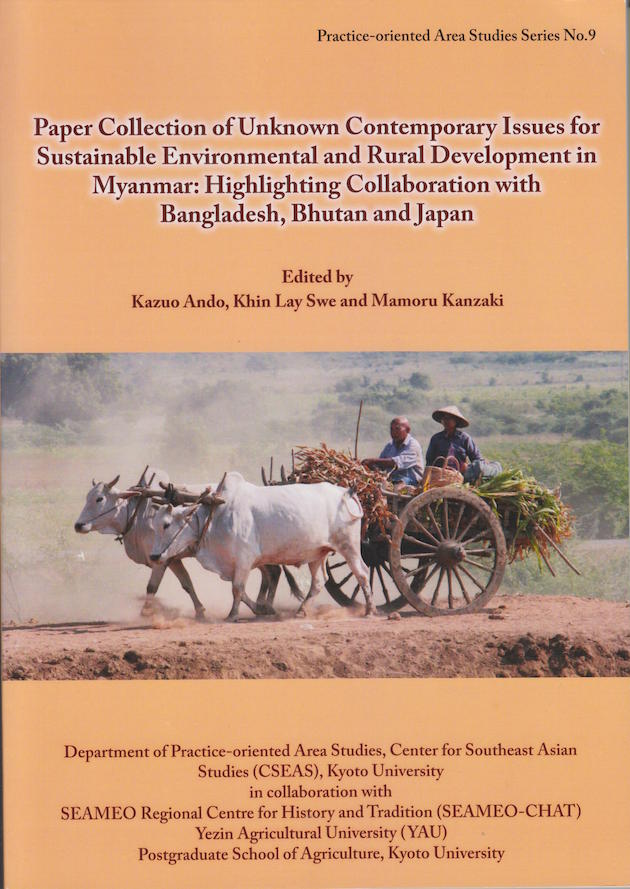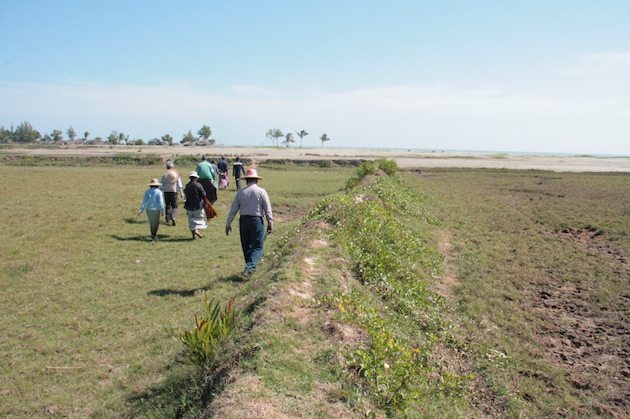Mitigating Cyclone and Flood Damages in Myanmar: Applying the Bangladesh’s Successful Experiences
Project Gist
Mitigating Cyclone and Flood Damages in Myanmar: Applying the Bangladesh’s Successful Experiences
Keywords
natural disaster, mitigation, Bangladesh, Myanmar. Locally existing Wisdom
Background and Purpose
There is significant difference in damage scale of natural disaster such as cyclone, flood and salinity between Bangladesh and Myanmar. Both countries have a great delta at the mouth of large river. There is obvious difference in natural disaster damage such as cyclone, flood and salinity between Bangladesh and Myanmar. The objective of the project is to propose a trial program of concrete social experimental study prepared on the basis of discussion about potential of application of disaster mitigation technologies , which have been established in Bangladesh with the cooperation of government and local people.
Project Achievements
The filed work to collect the ZAICHI NO GIJUTSU or locally existing technologies and investigate, the present situation of the cyclone shelters and the salinity problem etc have been conducted in both the countries of Myanmar and Bangladesh. The six international workshops related to the project objective have held in Thailand, India, Myanmar and Japan; a part of outcome has been published as a book. The international collaborative research and the interdisciplinary approach have been positively promoted in the project; this project outcome has also encouraged us to apply the KAKEN programs. Two JSPS KAKEN programs such as Challenging Exploratory Research and Scientific Research (A) have started in 2016 FY. This project should be continued and developed in collaboration with young scholars in the future.
Future Prospects
The research plan from 2016 FY is taken over by two JSPS KAKEN program such as Challenging Exploratory Research and Scientific Research (A); the social experiment project of construction of Bengal type homestead will be conducted for introducing a disaster mitigation technology in Myanmar. Recognizing natural disaster, de-population and abandoning farming as global issue, we are establishing the practice-oriented area studies in order to contribute to overcoming global issue.
Figure



Principal Investigator

・ANDO Kazuo
・Center for Southeast Asian Studies
・My area studies has started as the field work on the traditional rice cultivation in the ZAICHI(or village community) of Bangladesh; it has developed as Practice-oriented Area Studies based on the ZAICHI NO JIKAKU (the self-awareness living in the ZAICHI ) or real feeling of living in the field, which give importance to sharing the consciousness with the local people facing the problem in the ZAICHI in order to challenge to overcome the global issues such as de-population, abandoning farming, environment problem etc.
・http://www.cseas.kyoto-u.ac.jp/brahmaputra/HTML/workshop.html
